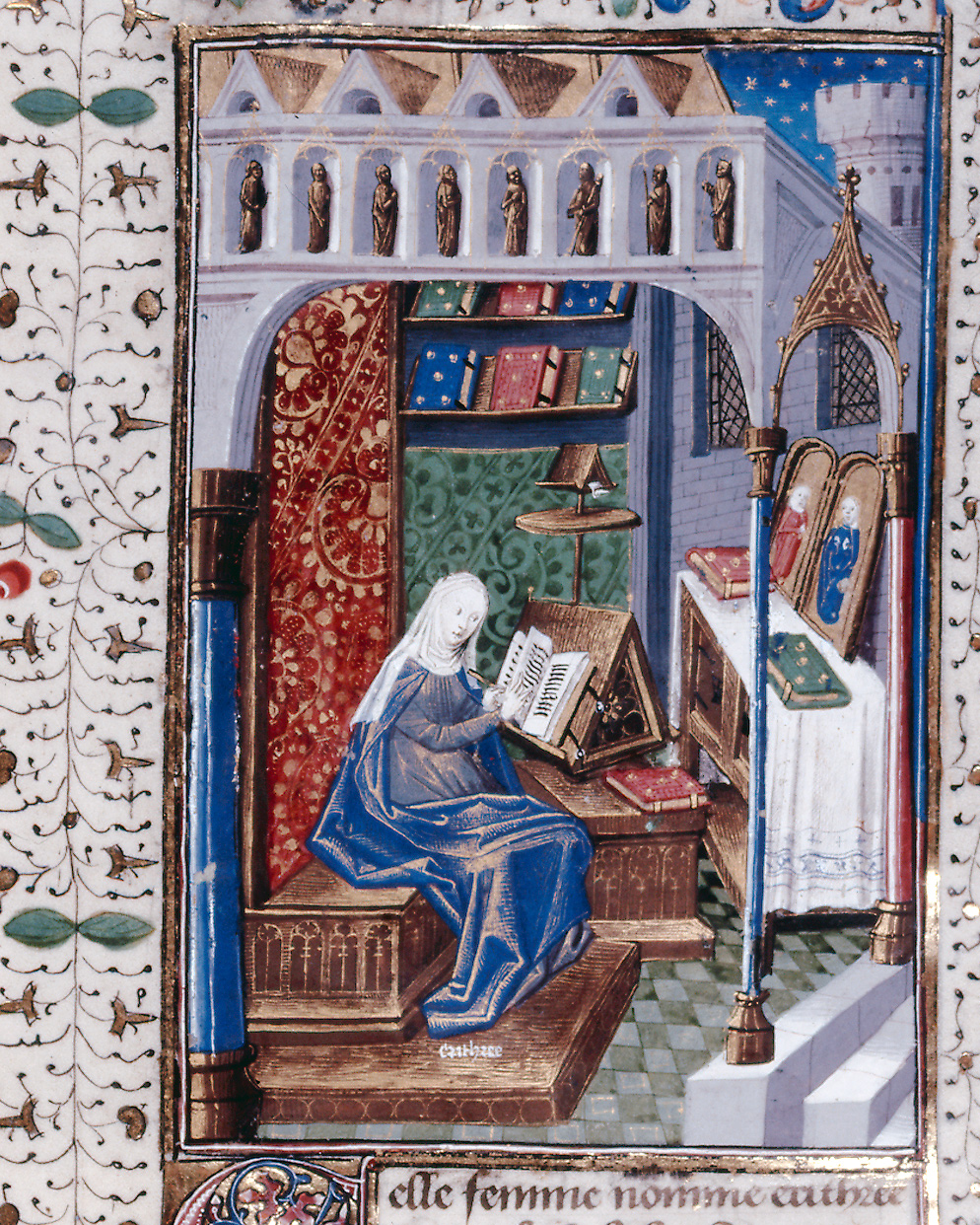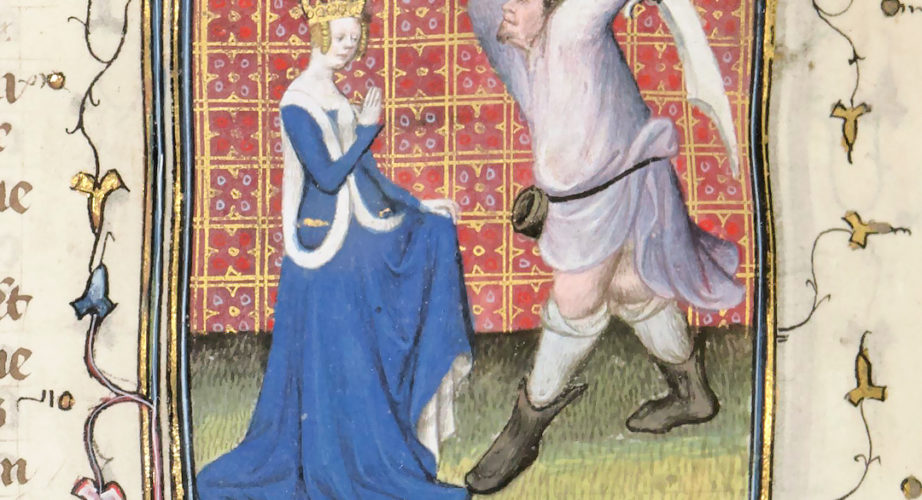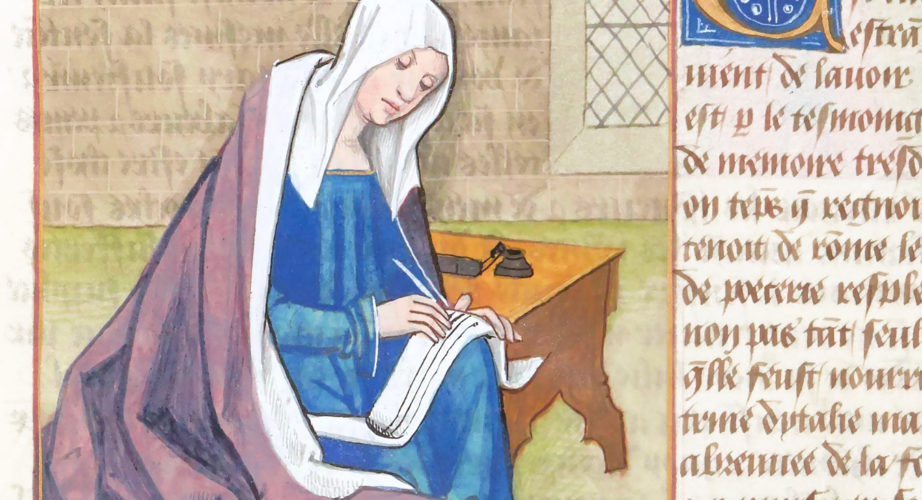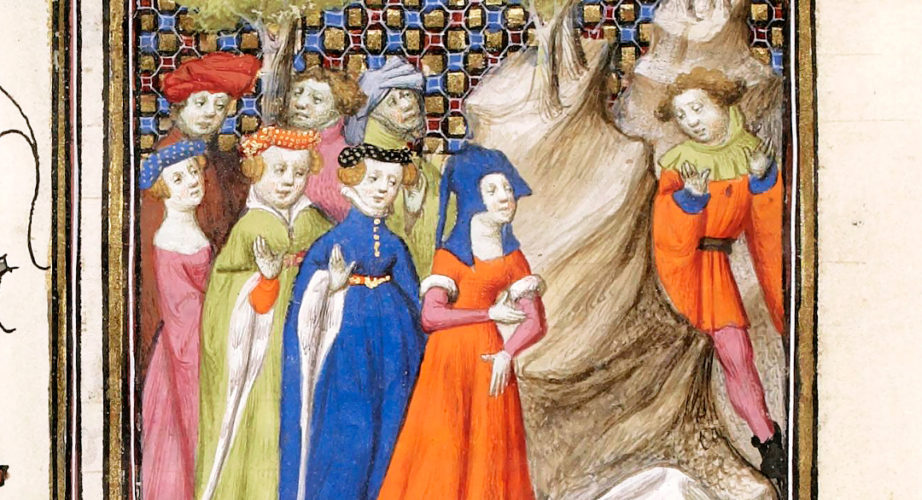The Erythraean Sibyl

Our voyage through the pages of the De Mulieribus Claris continues today with Herophile (or Eriphila). Herophile was one of the priestesses of the Apollonian Oracle in Erythrae, in Ionia; because of this, although being born in Babilonia, she is also known as the Erythraean Sibyl.
The word "Sibyl" itself comes from the ancient Greek "Sios",meaning "God" and "byle",meaning "mind": a sibyl, therefore, represents a "divine mind" or is a "bearer of God in the mind". This divine inspiration meant being able to predict the future: sibyls would give vague answers to the questions they were asked, but, contrary to those of many oracles, these answers were in written form and thus relied less on memory and were believed to be more accurate. Herophile, for one, allegedly used to write down her prophecies on several leaves - so that the initial letter on every leaf, when arranged in the right sequence, would form another word or phrase: this is the origin of the modern acrostic.
Among other prophecies, Herophile is often credited for having predicted both the coming of Alexander the Great and the Greek victory of Troy, as well as Homer's telling of the story. In Christian tradition, however, the Sybil is also said to have prophetized the coming of the Redeemer with the acrostic "ΙΗΣΟΥΣ ΧΡΕΙΣΤΟΣ ΘΕΟΥ ΥΙΟΣ ΣΩΤΗΡ ΣΤΑΥΡΟΣ" ("Jesus Christ, God's Son, Savior, Cross").
“Erythraean Sibyl”, illumination from the manuscript “Des cleres et nobles femmes”, ms. Spencer Collection 033, f. 18v, ca. 1450, The New York Public Library.
Historically and mythologically speaking, being in a powerful position (and perhaps also a…
The time has finally come for the very first Women’s Wednesday of 2021!…
Welcome back to another Women’s Wednesday! Our weekly Mulier Clara, much like Sappho…


